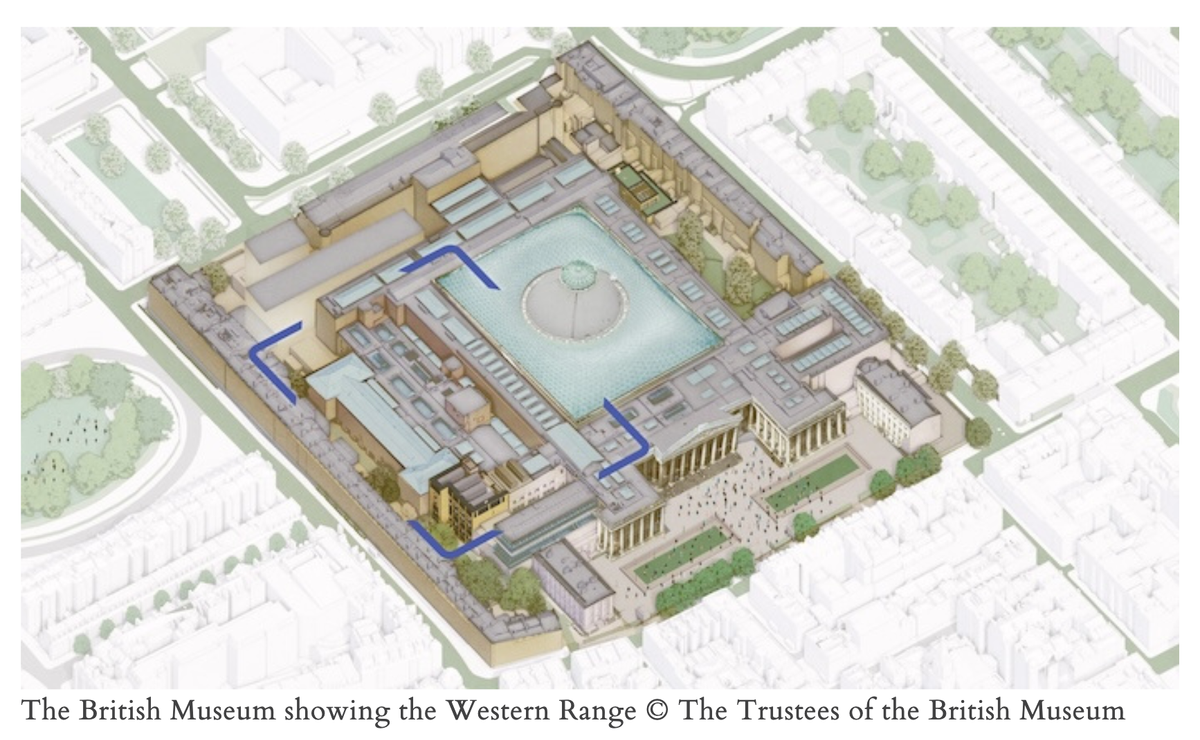
URGE is a collective of designers, architects, writers and creative industry experts committed to addressing the planetary emergency. We were invited to join one of the teams for the British Museum's Western Range competition funded by BP. The project potential and proposed team is a very attractive opportunity and it is with some sorrow that we declined the offer. But we feel we had to do so because the project does not represent leadership, either on the part of the client or the funder, and we would like to explain why.
We owe a huge debt to fossil fuels for helping to bring about the greatest advance in living standards in the history of humanit but it has been clear for at least 30 years that we need to urgently move away from coal, oil and gas. Recent evidence has shown that several of the large oil companies knew 40 years ago that climate change was real, man-made and serious but instead of taking action they chose denial, delay and obfuscation.
One of us attended a debate (held under Chatham House rules) in London in the early 2000's at which a recently retired oil executive commented that "The reason we are taking action on climate change is because we don't want to be tried as mass murderers in the future." It was a statement that was surprising in its boldness and suggested that we were on the cusp of real change. It appears that the oil majors changed their mind and decided to make as much mone as possible during the twilight years of the industry.
The delaying tactics continue to the present day and, in spite of 28 gatherings of the Intergovernmental Panel on Climate Change, no firm agreement has been reached on an limitation to fossil fuel extraction. The dangers go beyond climate breakdown: the invasion of Iraq was largely about access to fossil fuels and resulted in the deaths of up to an estimated 1,033,000 people. For the cost of the Iraq war (approx. $3 trillion), clean energy and freshwater could have been brought to nearly every poor citizen of the world. The unavoidable fact is that fossil fuels present a risk that threatens global stability and the lives of billions of people.
Nearly all the major arts institutions have weaned themselves off fossil fuel sponsorship so it is disappointing that the British Museum persists in helping BP to greenwash its image. Does BP really want to risk their own industry's predictions becoming a reality and does the British Museum want to continue being on the wrong side of history? This project suggests that the answer to both those questions is 'Yes'. It's unfortunate that some in the design community are willing to be complicit in this.
What would leadership look like?
For BP it would be to not just publish a plan, but activate a rapid and just transition away from fossil fuels towards renewable energy. This would involve collaborating with the other major oil companies to agree with governments the economic conditions necessary to continue competing on a level playing field and towards a goal that is aligned with restoring planetary health. For the British Museum it would involve refusing fossil fuel funding until the oil companies are fulfilling their responsibilities.
We welcome opportunities to work with groups who are conscientiously committed to charting a safe and just course for humanity.
The URGE collective

